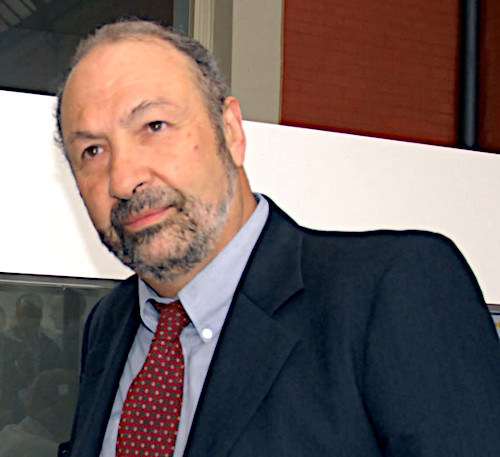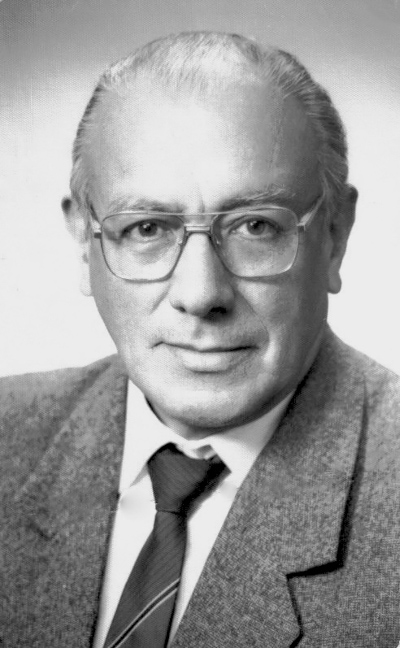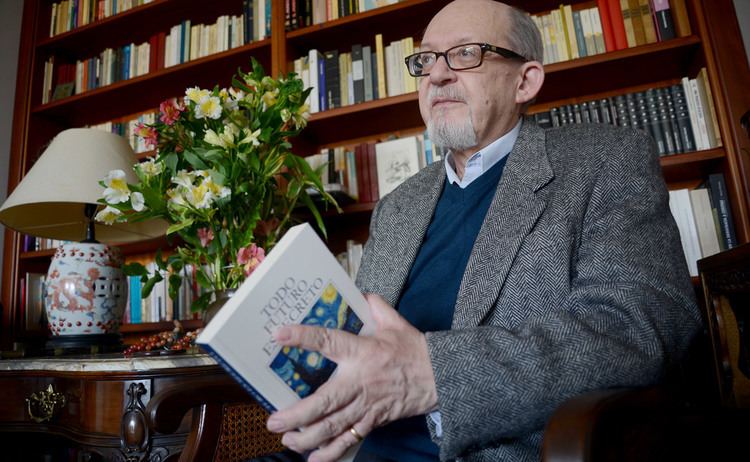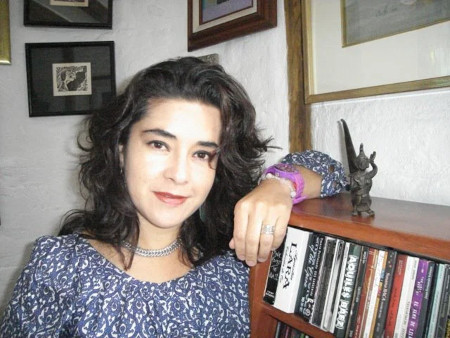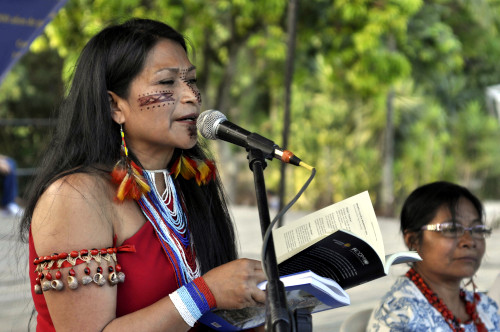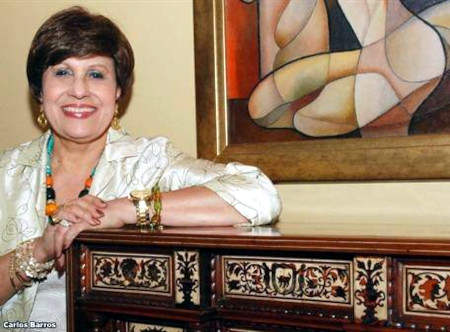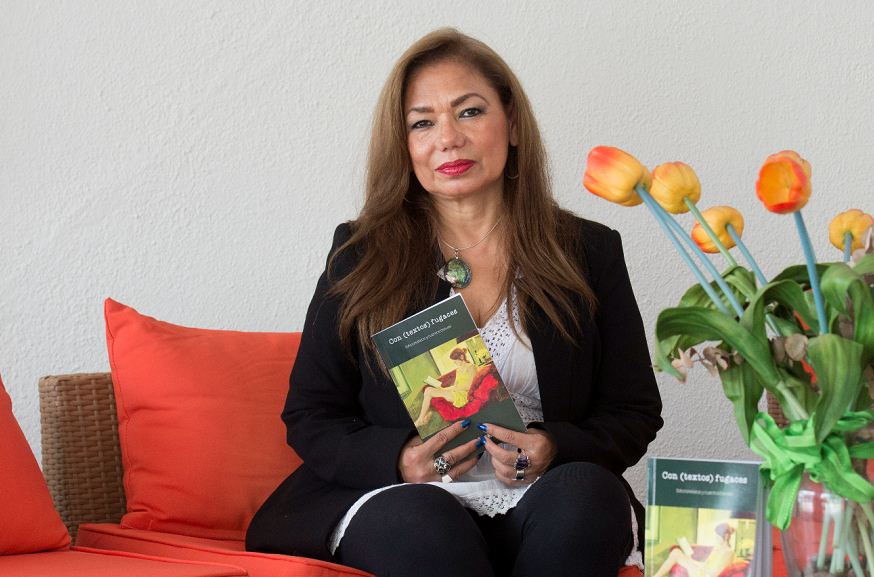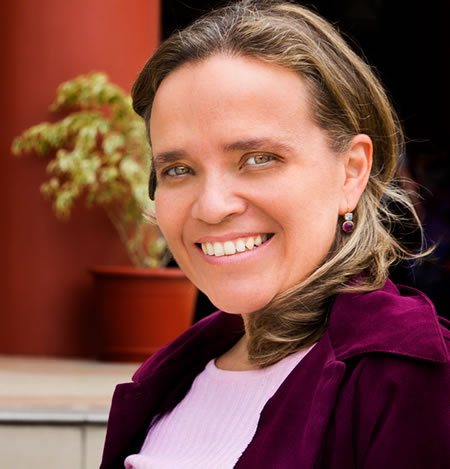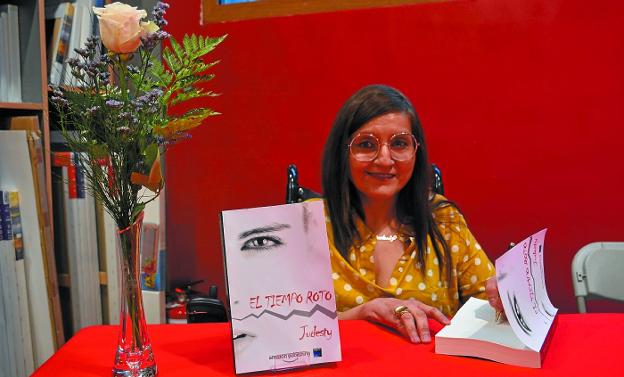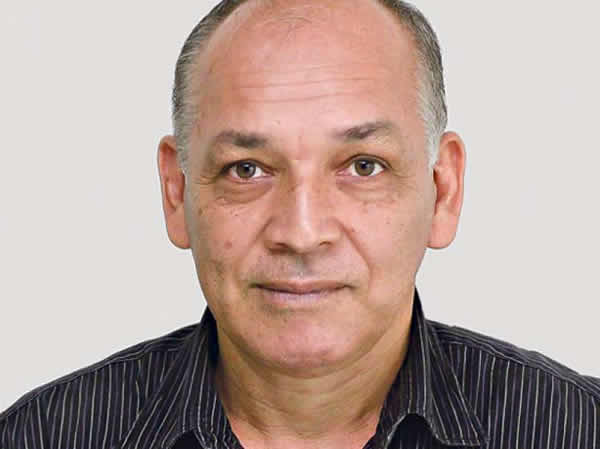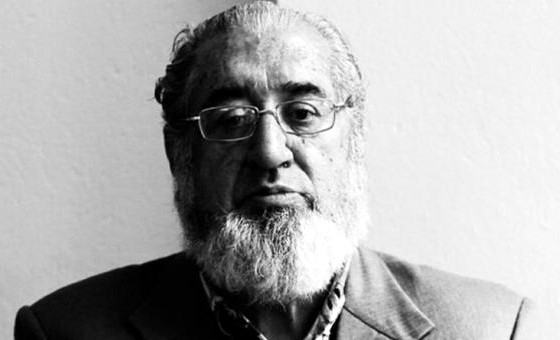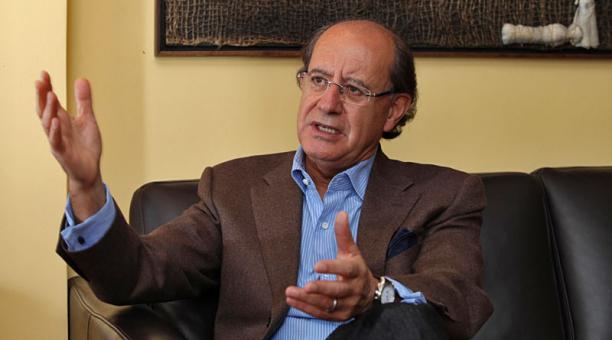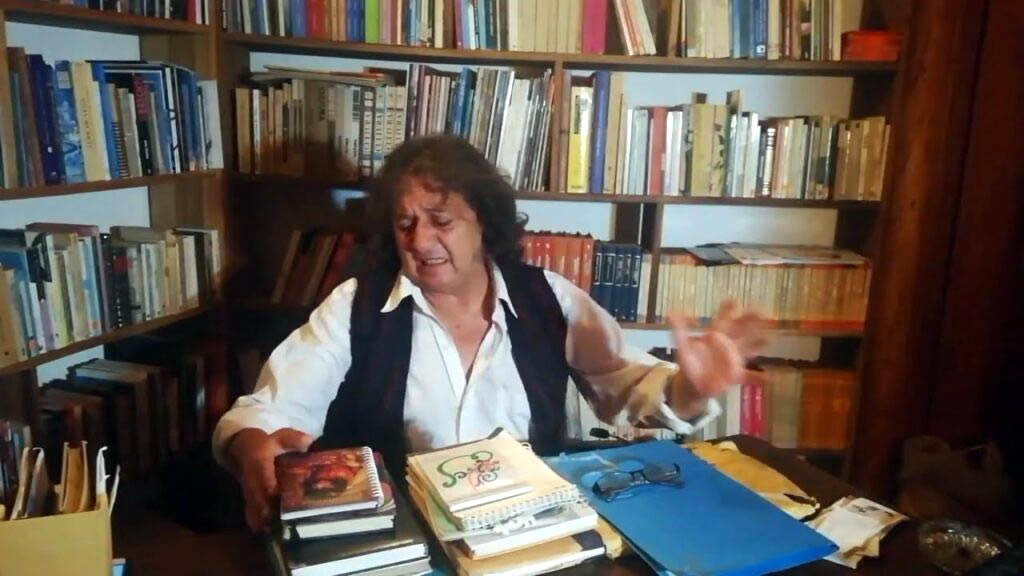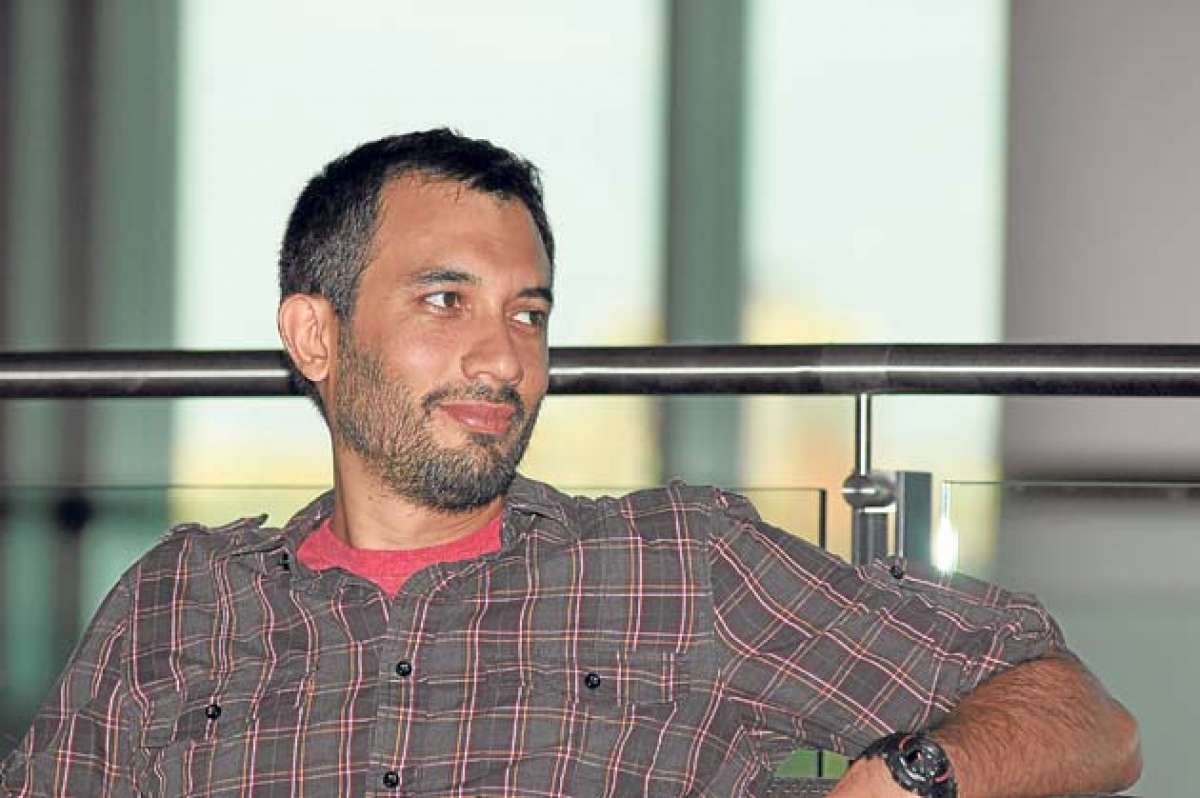Javier Vásconez (Quito, 1966) is an Ecuadorian novelist, short story writer, and editor. In 1989, his collection of short tales “El hombre de la mirada oblicua” [The Man with the Sideways Glance] won the Joaquín Gallegos Lara Prize, and in 1982 his book of short stories “Ciudad lejana” [A Distant City] was a finalist for the Casa de las Américas Prize (Cuba). His stories have been translated into other languages, including English, French, German, Swiss, Hebrew, Bulgarian, and Greek. In 2022, he was awarded the Eugenio Espejo Prize, which is Ecuador’s highest national literary award.
Continue reading “Javier Vásconez”Category: 21st Century Writers
Eduardo Varas
Eduardo Varas Carvajal (Guayaquil, 1979) is an Ecuadorian novelist, musician and journalist, currently living in Quito. He studied Social Communication at the Catholic University of Santiago de Guayaquil and was a member of Miguel Donoso Pareja’s Writer’s Workshop. He has worked for the newspapers El Comercio, El Universo, El Expreso, and El Telégrafo, as well as the magazines SoHo, Mundo Diners, and Ecuador Infinito. In 2007, he published “Conjeturas para una tarde,” a collection of short stories, and in 2008, he was included in the online anthology “El futuro no es nuestro,” along with several other Latin American short story writers. In 2010, he wrote the novel “Los descosidos.” In 2021, he won the Miguel Donoso Pareja Award for his short novel “Las tres versiones,” which was based on the true story of Ecuador’s youngest serial killer, Juan Fernando Hermosa. In 2021, he published his latest novel “Esas criaturas.”
Continue reading “Eduardo Varas”Luis Alberto Costales
Luis Alberto Costales Cazar (Riobamba, December 24, 1926 – Ibidem, February 1, 2006) was an Ecuadorian poet, writer, historian, philosopher, teacher, orator, farmer, and politician. Renowned as a multifaceted figure, Costales left an indelible mark on Ecuadorian literature and politics. His literary repertoire includes notable works such as “Bucólicas y Una Vida Simple,” “Sobre el Pomo de la Tierra,” “Exiliado en el verso,” and “Rutas de Sombra y de Sol.” Notably, he co-founded the Democratic Left Party and played a significant role in shaping the political landscape of Ecuador. Throughout his life, Costales remained dedicated to his principles, promoting ideals of love for his city, patriotism, and deep moral values.
Continue reading “Luis Alberto Costales”Juan Andrade Heymann
Juan Andrade Heymann (Quito, December 18, 1945) is an Ecuadorian writer, novelist, short story writer, poet, and playwright. His short story El lagarto en la mano (1965) and his novel Las tertulias de San Li Tun (1993) expressed social change.
Continue reading “Juan Andrade Heymann”Aleyda Quevedo Rojas
Aleyda Quevedo Rojas (Quito, 1972) is an Ecuadorian poet and journalist. She is regarded as an important voice in contemporary Latin American poetry. Among her best-known works are the poems “Algunas rosas verdes” (1996), for which she won that year’s Jorge Carrera Andrade Award, and “Soy mi cuerpo” (2006), in which she uses the human figure as an escape from the fears and anguish provoked by death. The latter book and another one, “Jardín de dagas” (2013), were translated into French. In 2017, the House of Ecuadorian Culture published the book “Cierta manera de la luz sobre el cuerpo,” a compilation of her poems up to that point.
Continue reading “Aleyda Quevedo Rojas“María Clara Sharupi Jua
María Clara Sharupi Jua (Morona Santiago, 1964) is an Ecuadorian writer, poet, and translator, who writes in Spanish and Shuar, an indigenous language of Ecuador’s Amazon basin. She writes poetry in Shuar, while translating it into Spanish in order to reach a wider audience. She co-wrote the book “Amanece en nuestras vidas” (2011), the first anthology of poetry from Ecuadorian indigeneous women writers, and wrote the short story collection “Tarimiat” (2019), which was written in Shuar, Spanish, and English. Sharupi Jua also works as a translator and radio and television presenter in Shuar and Spanish. She was a member of the translation team that worked on the official Shuar translation of Ecuador’s Constitution. She lives in Quito, where she has also worked for the Ministry of Foreign Affairs and Migration on indigenous issues.
Continue reading “María Clara Sharupi Jua”Rosa Amelia Alvarado
Rosa Amelia Alvarado Roca (1944, Guayaquil) is an Ecuadorian writer and poet. In 1964 she founded the Guayaquil-based magazine Hogar, which became the biggest women’s magazine line in Ecuador. From 1967 to 1972, she worked in television as the director of programming at Channel 2 in Guayaquil, specializing in the creation of cultural programs. She is the president of the Guayas branch of the House of Ecuadorian Culture, and is a member of the Ecuadorian Academy of Language. Her most notable poems include: “Añoranza,” “Cosas Absurdas,” “De lo profano (II),” “El sermón de la montaña” and “La vida va y viene.”
Continue reading “Rosa Amelia Alvarado”Aminta Buenaño
Aminta del Rosario Buenaño Rugel (Santa Lucía, Ecuador, September 27, 1958) is an Ecuadorian writer, journalist, diplomat, and politician. She is celebrated for her literary works that explore women’s experiences and feminist themes, with notable titles such as La mansión de los sueños (1985) and Mujeres divinas (2006). As vice-president of Ecuador’s Constituent Assembly, she played a pivotal role in drafting the 2008 Constitution, advocating for gender equality. Buenaño has also served as Ecuador’s ambassador to Spain and Nicaragua. Among her many accolades is the prestigious Jauja International Short Story Prize of Valladolid (1979). Her most recent novel, Un blues para Roberto (2022), delves into themes of love and loss, and was presented at the 2022 International Book Fair in Guayaquil.
Continue reading “Aminta Buenaño”Ruth Patricia Rodríguez
Ruth Patricia Rodríguez Serrano (Loja, 1966) is an Ecuadorian writer and professor at the Universidad San Francisco de Quito. Known for her work across various genres including poetry, short stories, and novels, she has won prestigious national literary awards such as the Círculo de Lectores and the Pablo Palacio Prize. Rodríguez has also represented Ecuador internationally, notably at the World Assembly of Young Artists for Peace in Bulgaria. Her critically acclaimed works include “Putas de Cristal” (2010) and “Clepsidra. Todos fuimos margaritas” (2020), which features both a novel and a short story collection.
Continue reading “Ruth Patricia Rodríguez”Tamara Cadena (pen name Judesty)
Tamara Cadena, pen name Judesty (Quito, 1967) is an Ecuadorian writer. She has received several national and international awards and recognitions. In 2009, Cadena’s first novel El acuerdo (2008) won first prize in the online literary contest of El Corte Inglés and BookAndYou.com. Cadena’s third and latest novel El tiempo roto (2017) was well-received by critics. She has lived in Spain since she was thirteen. Cadena publishes her books under the pseudonym Judesty.
Continue reading “Tamara Cadena (pen name Judesty)”Pablo Gómez Morán
Pablo Alberto Gómez Morán (Vinces, 1963) is an Ecuadorian writer known for his debut and only published book, “Las guerras de los hijos del sol: Leyendas de los antiguos pueblos andinos y australes” (2018). The book is a captivating retelling of Andean myths, reflecting Gómez Morán’s passion for the ancient cultures of the region. With his imaginative storytelling, he aims to elevate South American mythologies alongside universal mythologies and epic fantasy literature, offering readers a glimpse into the fascinating world of ancient Andean civilizations.
Continue reading “Pablo Gómez Morán”Alejandro Moreano
Alejandro Moreano (Quito, 1945) is an Ecuadorian writer, essayist, university professor, novelist, literary critic, and political scientist. On four occasions he was the director of the school of sociology at the Central University of Ecuador, and has been a professor at the Pontifical Catholic University of Ecuador, and is currently a visiting professor at the Simon Bolivar Andean University (Ecuador). His latest novel El crímen del tarot (2020), which Moreano has described as “a novel within a novel,” has to do with politics, theater, love and eroticism.
Continue reading “Alejandro Moreano”Jaime Marchán
Jaime Marchán Romero (Quito, March 15, 1947) is an Ecuadorian writer, diplomat, and academic. He holds degrees in Political and Social Sciences and in Jurisprudence from the Pontificia Universidad Católica del Ecuador (PUCE). As a member of the post-boom generation of Latin American writers, his literary works are known for their stylistic purity and complex character psychology. Marchán has published several notable works, including La otra vestidura (1991) and Volcán de niebla (2012), which won the Joaquín Gallegos Lara National Fiction Prize in 2013. In addition to his literary career, he has held significant diplomatic roles, representing Ecuador in multiple countries and serving as Vice Minister of Foreign Affairs and ambassador. He is also a full member of the Academia Ecuatoriana de la Lengua, occupying seat “Ñ” since 2013.
Continue reading “Jaime Marchán”Patricio Vallejo Aristizábal
Patricio Vallejo Aristizábal (Quito, 1964) is an Ecuadorian actor, director, dramaturg, playwright, and professor. In 2013, his play Caminando sobre arenas movedizas (2012) won the Joaquín Gallegos Lara Prize. He has written books on theater, such as Teatro y vida cotidiana (2003), El teatro político y la figura del Inca (2003), and La Niebla Y La Montaña: Tratado Sobre El Teatro Ecuatoriano Desde Sus Orígenes (2011). In 2001, the House of Ecuadorian Culture bestowed on Vallejo the “National Theatrical Merit Award.”
Continue reading “Patricio Vallejo Aristizábal”Esteban Mayorga
Esteban Mayorga (Quito, 1977) is an Ecuadorian writer. He received his PhD in Hispanic Studies from Boston College. He is on the faculty of the Department of Modern and Classical Languages at Niagara University, New York, and Universidad San Francisco de Quito, Ecuador. His areas of research include the Latin American novel, travel writing, contemporary transatlantic fiction, and comparative literature. Mayorga has written a variety of fiction works, including the novella Vita Frunis (2010, winner of the Pablo Palacio Prize), and the novels Moscow, Idaho (2015), Cuarenta (2018), and Faribole (2018). He also wrote the short story books Un cuento violento (2007, winner of the Joaquín Gallegos Lara Prize) and Musculosamente (2012). Every other year he teaches a course on Latin American travel literature and takes students to the Galápagos Islands and the jungle of Ecuador.
Continue reading “Esteban Mayorga”
